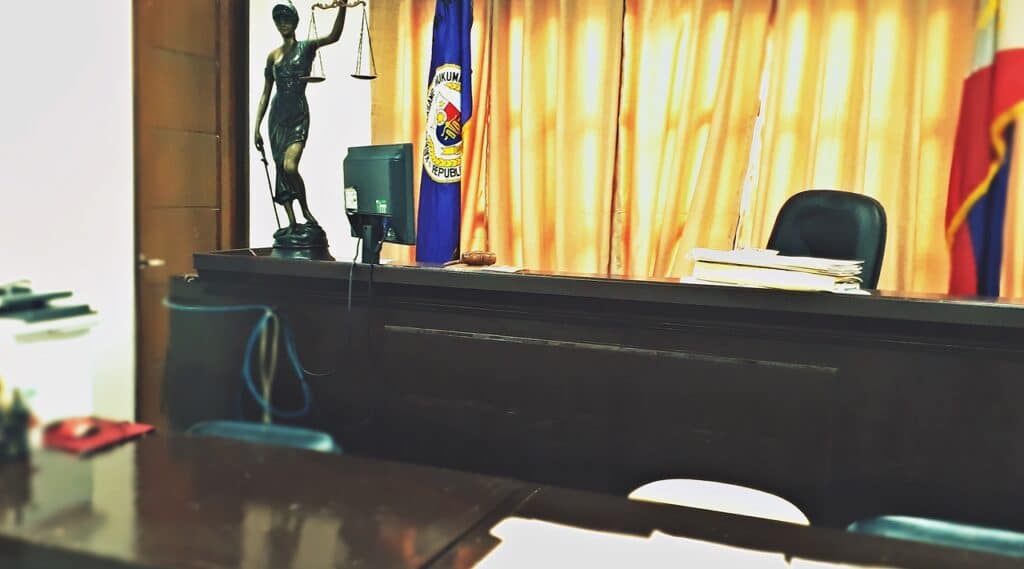How to Recognize a Foreign Adoption on a Philippine Birth Certificate
Have you adopted a Filipino child in a foreign country?
Say you adopted the illegitimate child of your Filipina wife who was already in your country.
Or you may have adopted a distant relative of your Filipino spouse.
These circumstances are examples of situations where the adoption of the Filipino child was processed by a foreign country and not the Philippines.
As such, the child’s Philippine birth certificate papers will not have reflected the adoption.
I explain, step by step, how to reflect this foreign adoption in the child’s Philippine birth certificate.
How will the adoption be recognized?
Recognizing this foreign adoption requires a court case that takes about 1 to 1.5 years to complete.
Since the Philippines did not process the adoption (i.e. neither through domestic adoption nor through the Inter-Country Adoption Board), the main issue in the Philippine court case is to establish that the foreign adoption was validly obtained in the foreign country.
The task is to demonstrate that the foreign adoption took place and that it was in accordance with that foreign country’s laws on adoption.
To recognize and enforce it, the Philippine court confirms authenticity of documents, particularly the adoption law of the foreign country and the foreign adoption papers. The court also hears testimony on how the adoption was obtained.
If all is found in order, the will issue a Decision ordering the amendment of the child’s Philippine birth certificate to reflect the foreign adoption in the Philippine civil registry system.
What documents should you prepare?
Please prepare the following documents:
1. Foreign Adoption order
2. Certified Copy of the foreign country’s Adoption Law
3. Birth Certificate of the Child
4. Birth Certificate/Passports of the Adoptive Parents
This is the minimum that you would need to recognize the foreign adoption.
The documents have to go through a process of authentication so that they may be used as evidence in Philippine courts.
Depending on the foreign country, the documents must be duly authenticated in the foreign country in accordance with the Hague Apostille Convention or certified then authenticated at the Philippine embassy in the foreign country.
The foreign law on adoption should be similarly authenticated.
Retrieving the Foreign Adoption law should meet the requirements of the Philippine courts’ Rules on Evidence. How these rules apply vary on a per country basis, partly in depending on whether the foreign country is a HAC treaty member and on its own internal authentication or certification processes.
If the documents are not in English, they must also be duly translated.
Preparing all this requires time and study on a per case basis.
What is the court process like?

The court case for Phiippine recognition of the foreign adoption
Complete document gathering should be the first step.
After your attorney has instructed you on the correct way to gather and authenticate the documents, he will create a petition.
This petition will be filed with the Philippine court and raffled to a particular branch of the Regional Trial Court.
Your lawyer will then comply with legal requirements set by the rules of procedure.
These includes publication, notice to the parties, and submission of evidence. These pre-hearing requirements can be extensive but must be complied with so that the case continues smoothly.
After the jurisdictional requirements are established, the next court hearing will require witness testimony on to the adoption. This is usually accomplished through a judicial affidavit where the testimony of the witness is written down and sworn to beforehand. This judicial affidavit is the basis of the government’s cross examination of the witness.
A formal offer of evidence and perhaps legal memoranda will then be submitted prior to the court’s decision.
Can this be done while I am abroad?
Yes.
If you are abroad, you can better gather the foreign documents after having been given thorough instructions by your lawyer.
Coordination with Philippine counsel can be done through email, call and video conference, or messaging services.
The taking of your testimony in court can be calendared for when you are in the country.
If circumstances are such so that personal testimony is not possible, you and your lawyer can discuss who best can attest to the adoption. There is also the possibility that the court will allow video conference court hearings so that physical presence in the court room will not be required.
How long does it take?
The Philippine courts have heavy caseloads.
Although there are relatively few hearings required for a case such as this, it can still take anywhere from 1 to 1.5 years to complete the trial.
It will also depend on the particular circumstances of the court you are raffled to.
A retiring judge, a vacancy or an extraordinarily crowded court may cause delays.
On the other hand, an efficient judge can push it through the system more swiftly than expected.
What are the costs involved?
Costs are composed of the following:
• Lawyer’s fees include an acceptance fee, a success fee, pleading and hearing fees.
• Court fees include court filing fees, service and the required publication costs which can vary
depending on what the judge orders and where it is published. Publication fees can range
from 25,000 to 45,000 and in some cases even more.
• Document fees such notarization, postal service and reproduction.
• Foreign document costs vary on a per country basis.
6 Comments
Trackbacks/Pingbacks
- Is the adoption of a Filipino child in another country recognized in the Philippines? - Lawyers in the Philippines - […] We have discussed this in detail in our other article on the topic. […]






Not sure if this is the similar:
My mother was born in the Philippines born to Filipino parents hence her last name is of her fathers in the PSA records (mother maiden last name as her middle name and father last name as her last name). Her father passed away and her mother remarried years later (married in the Philippines outside of the US Naval base) to an American US Navy (based in the then US Naval base in Olonggapo, Philippines). Her step father adopted her and she took his last name as a result of this (middle name is her mothers maiden last name and her new last name is that of her step father). The adoption was held within the US Naval base and appears to not have been authenticated by the PSA. As a result of this, her PSA records are still in her biological father’s last name and she has no adoption records in the Philippines. What is the best approach to fix this?
We would need to see the adoption papers to say. Send us an email with the documents at contact@lawyerphilippines.org if this is something you’d like to discuss.
Hi Atty. Britanico
1. Would the process still be the same for a Japanese husband and Filipina wife who adopted a stateless child (most likely the child will become a Japanese citizen once naturalization application has been approved)?
2. Once the adoption ruling has been granted, the couple has until how many months/years to file for a recognition?
3. Should the recognition case be filed in the wife’s hometown? Or can it be filed in Manila (for convenience of access)?
This article is primarily with respect to the adoption of a Filipino child while abroad rather than a foreign child.
For the situation you describe, you may be best served by first contacting the Philippine embassy to discuss whether you can register the adoption with them.
What would be an estimated total cost for this process if adoption occurred in the US?
This depends on a number of factors, including in which city or municipality the child’s birth was registered and whether the biological parents agreed. We would need more specific information to say. Will send an email.